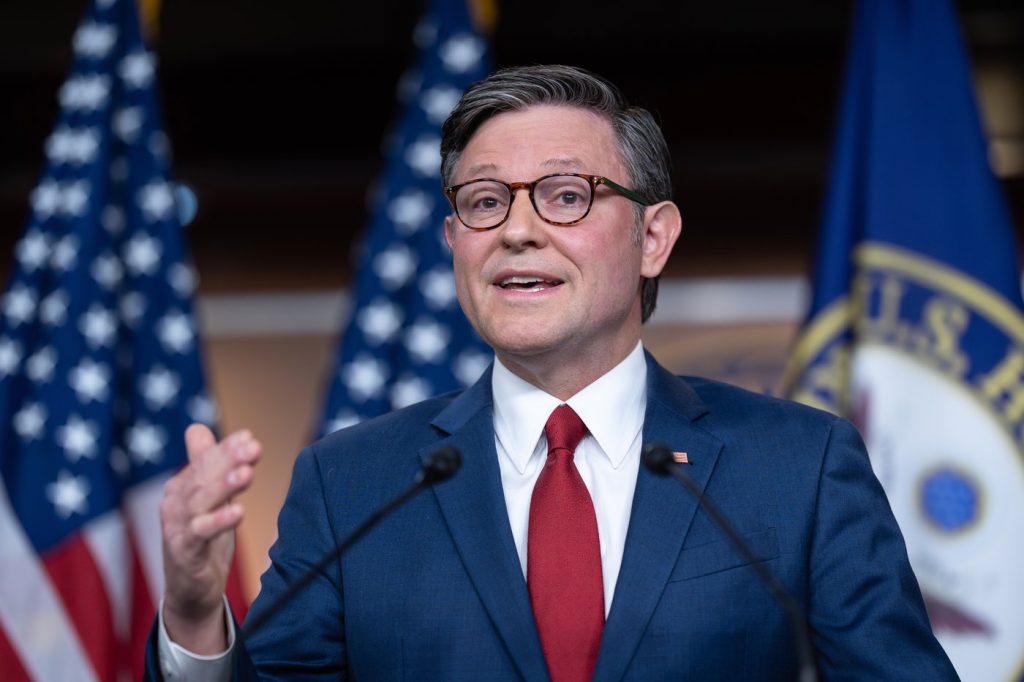After nearly eight weeks of absence due to the government shutdown, Speaker Mike Johnson is recalling the U.S. House back into session, facing an onslaught of legislative demands from lawmakers. During this period, the House was largely sidelined from its governing responsibilities, and now hundreds of representatives are preparing to return to Washington, bringing with them a range of ideas, proposals, and frustrations that have accumulated.
The first item on the agenda will be a vote aimed at reopening the government, but this will be just the beginning of the legislative work that has been stalled. Key issues, such as the release of the Jeffrey Epstein files and the swearing in of Arizona’s Rep.-elect Adelita Grijalva, will add pressure on Johnson's leadership as he navigates the legislative needs and discontent of his colleagues.
Professor Matthew Green of The Catholic University of America commented on the gravity of the situation, noting that it is rare for either chamber of Congress to completely cease meeting. Johnson’s decision to close the House during the shutdown represents a significant break from traditional congressional norms, and has reduced the House's role in the legislative process, particularly in relation to President Donald Trump.
The extended absence of the House has led to various responsibilities being neglected, including passing routine legislation and performing oversight functions. The situation has raised concerns about the implications of such a political strategy, which many believe undermines the legislative branch's power and authority.
During the shutdown, Johnson has defended his choice to keep the House closed, arguing that the chamber had already fulfilled its obligations by passing a stopgap funding bill in September. He contended that it was now up to the Senate to act, yet when repeated attempts to advance the House bill failed, he opted not to engage in negotiations with other party leaders.
Johnson also encouraged President Trump to avoid discussions with Democratic leaders to maintain a hardline stance. Instead, he focused on daily press conferences, conference calls with GOP representatives, and maintaining a close relationship with Trump. Throughout these weeks, Johnson's reluctance to return to the negotiating table has drawn criticism, as he claimed he lacked anything to negotiate.
Despite being perceived as an unlikely leader when he assumed the speakership, Johnson has managed to maintain GOP unity. His tenure has included passing significant legislation, including Trump’s major tax and spending bill earlier this summer. Moreover, his shutdown tactics resulted in Senate Democrats ultimately agreeing to reopen the government without requiring the extension of health care subsidies, which they had demanded.
As lawmakers prepare to reconvene, Johnson’s authority will face new challenges with the upcoming vote to reopen the government. The proposed funding package is not without controversy; it will fund parts of the federal government through January 30 and maintain certain programs until September while prompting discontent among GOP lawmakers.
House Democratic leaders, notably Hakeem Jeffries, have criticized the extended absence of the House, indicating that Johnson’s leadership will be under scrutiny upon their return. The potential for dissent within the GOP poses a challenge as the narrowly divided chamber gears up to address pending legislative issues.
Johnson’s management of the House during the shutdown exemplifies his approach to leadership, marked by a profound reliance on executive authority and a notable shift away from the legislative independence historically expected of Congress. He has certainly solidified a unique position but risks further consolidating executive power at the cost of the legislative branch’s traditional roles.











